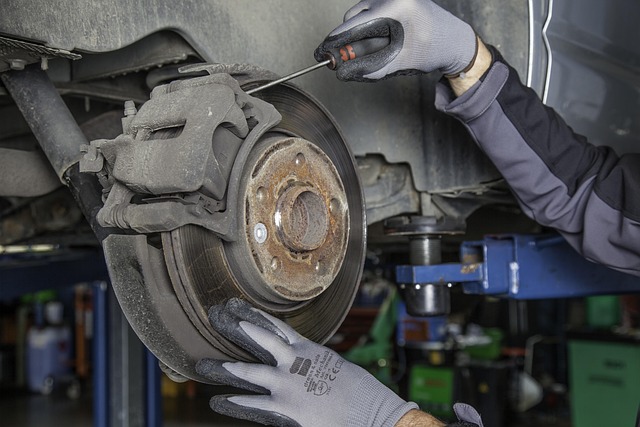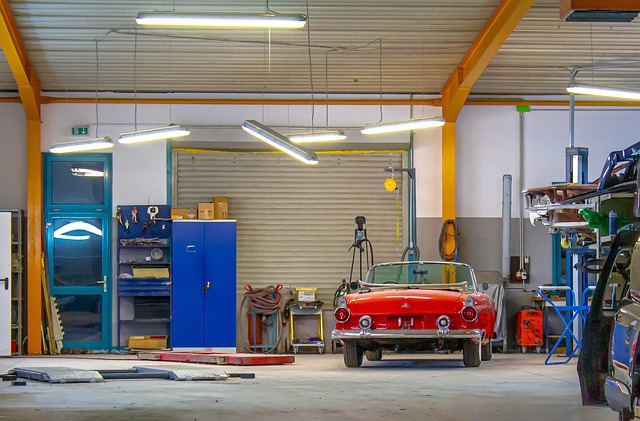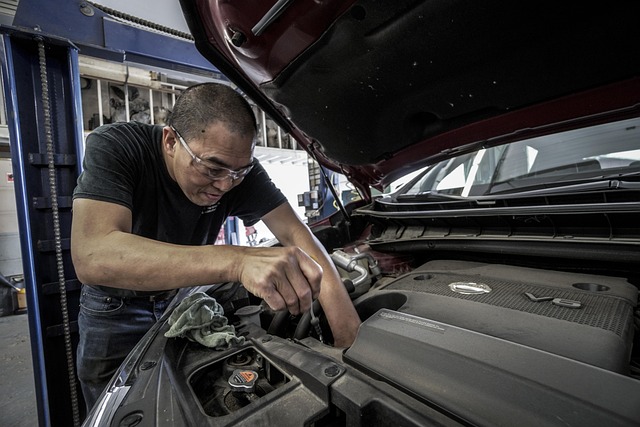In today's business environment, Corporate Social Responsibility (CSR) is a strategic must, especially for sectors like auto body work that have significant physical operations. An energy-efficient repair facility is key to achieving CSR goals by reducing environmental impact through eco-friendly materials, advanced technology, and sustainable energy sources. This not only cuts carbon emissions and conserves resources but also boosts public trust and improves shop reputation among environmentally conscious customers, making it a compelling business case due to long-term cost savings from reduced energy consumption.
An energy-efficient repair facility is more than just a sustainable choice—it’s a strategic move towards corporate social responsibility (CSR). This article explores how such facilities drive CSR initiatives, linking energy conservation with business success and environmental preservation. We’ll delve into the process of implementation, from evaluating current energy consumption to adopting strategies that reduce impact. Discover case studies showcasing successful transformations and learn about measuring impact for continuous improvement.
- The Role of Energy Efficiency in Corporate Social Responsibility
- – Defining corporate social responsibility and its significance
- – Linking energy efficiency to CSR goals
The Role of Energy Efficiency in Corporate Social Responsibility

In today’s business landscape, Corporate Social Responsibility (CSR) is no longer an optional consideration but a strategic imperative. At the heart of effective CSR stands energy efficiency, particularly in sectors that rely heavily on physical operations like auto body work and body shop services. An energy-efficient repair facility plays a pivotal role in upholding CSR by significantly reducing its environmental footprint. This is achieved through innovative practices such as utilizing eco-friendly materials, implementing advanced technology to streamline processes, and adopting sustainable energy sources.
By embracing energy efficiency, an auto body shop can decrease its carbon emissions, conserve natural resources, and promote a circular economy where waste is minimized. Moreover, the long-term cost savings from reduced energy consumption provide a compelling business case for these initiatives. This approach not only benefits the environment but also fosters public trust and enhances the facility’s reputation among customers who increasingly prioritize eco-conscious practices, especially when considering services like car dent repair.
– Defining corporate social responsibility and its significance

Corporate Social Responsibility (CSR) refers to a business’s commitment to contribute to social and economic development while protecting the environment. It involves recognizing that companies operate within communities and have a responsibility to ensure their activities are sustainable and beneficial to society. CSR is not just about profit; it’s a strategic approach where businesses integrate environmental, social, and ethical concerns into their operations, aiming to minimize negative impacts and maximize positive ones. In today’s world, consumers and stakeholders increasingly demand transparency and accountability from corporations, making CSR a vital aspect for long-term success.
An energy-efficient repair facility plays a significant role in a company’s CSR strategy. By adopting eco-friendly practices, such as utilizing renewable energy sources and implementing advanced technologies to reduce waste, these facilities demonstrate their commitment to environmental sustainability. This is particularly relevant in the automotive industry, where operations like auto body repair, car dent repair, and vehicle paint repair can have substantial environmental footprints. An energy-efficient facility not only reduces operational costs but also minimizes its carbon footprint, contributing to a greener planet and fostering trust among customers who prioritize eco-conscious practices.
– Linking energy efficiency to CSR goals

In today’s business landscape, linking energy efficiency to Corporate Social Responsibility (CSR) goals has become a strategic imperative for organizations aiming to make a positive impact on both the environment and society. An energy-efficient repair facility plays a pivotal role in this regard by reducing carbon footprints, minimizing waste, and promoting sustainable practices within the automotive sector. By adopting advanced technologies and implementing eco-friendly processes, these facilities not only lower operational costs but also contribute to a greener future.
This approach extends beyond mere cost savings; it empowers car damage repair and automotive repair shops to become responsible stewards of resources. Through efficient energy management, they can reduce the environmental impact associated with auto maintenance, ensuring that their operations align with global sustainability efforts. As a result, these facilities not only enhance their public image but also attract environmentally conscious customers who prioritize eco-friendly solutions for their vehicle needs.
An energy-efficient repair facility isn’t just a sustainable practice; it’s a powerful tool for enhancing corporate social responsibility. By prioritizing energy conservation, businesses can significantly reduce their environmental impact and contribute to global sustainability goals. This approach not only minimizes operational costs but also strengthens their public image and fosters trust among stakeholders. Embracing energy-efficient practices within repair facilities demonstrates a commitment to responsible business conduct, setting a positive example for the industry and encouraging broader adoption of eco-friendly solutions.













